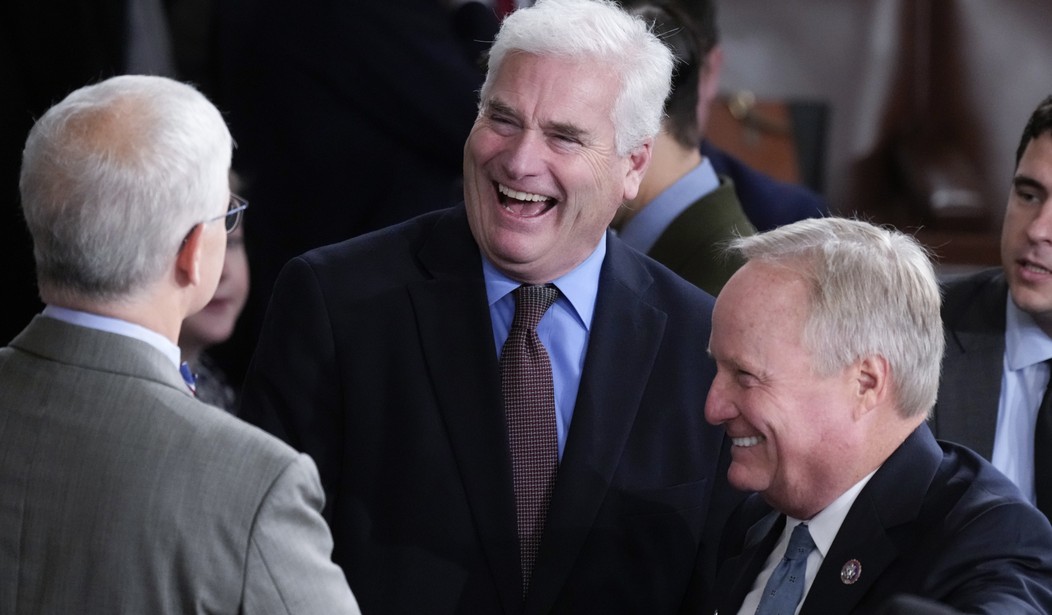Don't look now, but it appears maybe the Republicans may have chosen a new Speaker.
Which got me to thinking: How on Earth did we manage to survive this long without a Speaker of the House of Representatives? I don't know about you, but these past few weeks, I wake up in the morning and look out the window to see if the sun is still shining...
After all, without Republicans in Congress governing, why hasn’t our society collapsed? Of course, I jest. For the past 25 years, my best advice to each new Congress, regardless of which party has a majority, is the same: Don’t just do something, sit there! Because the alternative can often be intolerable.
As a recovering politician, my concern is that the politicians in Washington DC are going to act out and elect a speaker.
— Manic Contrarian 🇺🇸 🇮🇱 (@ManicContrarian) October 24, 2023
In our pursuit of a just and prosperous society, we often turn to our elected leaders in Washington, DC. However, government overreach masquerading as solutions often has terrible consequences that impede the growth of the economy, hindering opportunity and innovation while limiting the freedoms of the American people.
Let's explore some of the more notorious examples of Congress doing the important job of “governing.”
Dodd-Frank (2010): While the intention of preventing another financial crisis was commendable, Dodd-Frank unfairly burdened small community banks and financial institutions. These regulations made it exceedingly difficult for these community banks to provide loans to small businesses, stifling entrepreneurship. Rather than holding responsible the large banks that caused the crisis, Congress unfairly punished the innocent small players.
Affordable Care Act (2010): While we all value the importance of accessible healthcare, the Affordable Care Act imposed excessive requirements and penalties on small businesses. These financial burdens made it exceedingly difficult for small businesses to expand and create jobs. The employer mandate instilled fear among entrepreneurs, deterring them from taking risks while creating a disincentive to grow their businesses due to the cost implications established by the law.
Sarbanes-Oxley Act (2002): In response to corporate scandals, the Sarbanes-Oxley Act introduced burdensome accounting and disclosure regulations that disproportionately hurt small businesses. Compliance costs soared, making it difficult for small businesses to compete with larger corporations. Rather than targeting the wrongdoers, this legislative “solution” shackled innocent small businesses with unnecessary bureaucratic red tape.
National Climate Action Plan (2013): Addressing environmental challenges is important, but the regulations associated with initiatives like the Clean Power Plan disproportionately burdened small businesses and American industries reliant on fossil fuels. Which is to say all small businesses and all industries in America. The Clean Power Plan increased costs, hindered job creation, and stifled innovation.
CARD Act (2009): Meant to protect consumers, the Credit Card Accountability, Responsibility, and Disclosure Act of 2009 negatively impacted small businesses. While targeting credit card issuers, small businesses suffered the consequences as banks tightened credit lines and raised rates. This made it more challenging for small businesses to access credit and manage their cash flow, hindering their ability to thrive.
Occupational Safety and Health Administration (OSHA) Regulations: Workplace safety is paramount, but OSHA regulations can also be overly burdensome for small businesses. The complexity and cost of compliance pose challenges for small business owners, who may struggle to keep up with changing regulations and face financial strain in implementing the required safety measures. We often hear about this notion of “fair trade.” However, there can be no such thing as fair trade when American companies are shackled with onerous workplace rules and regulations, not to mention confiscatory taxes and fees.
You can add the Inflation Reduction Act, which increases taxes on corporations and empowers the IRS, just to name a few of its more notorious "solutions," as well as The Cares Act, which, by attempting to show Congress cares, in addition to a massive government overreach into every nook and cranny of American society, unleashed a torrent of federal government borrowing and spending ultimately resulting in higher interest rates, higher consumer prices, and millions of American families getting priced out of the American dream.
To be honest, the list of destructive, albeit well-intended, legislation coming out of Congress is endless. But hopefully, you get the point. Sometimes a government shutdown or Congressional paralysis is our friend.
As conservatives, we should value our first principles, which are limited government, lower taxes, private property, individual freedom, and free enterprise.
So my message to the current Republican Conference is simple: Unless the next Speaker of the House is committed to championing a pro-business agenda that supports working families and small businesses and helps the economy thrive, while getting government out of our way, my best advice to the GOP Conference is the same as it’s always been: Don’t just elect somebody, sit there.













Join the conversation as a VIP Member